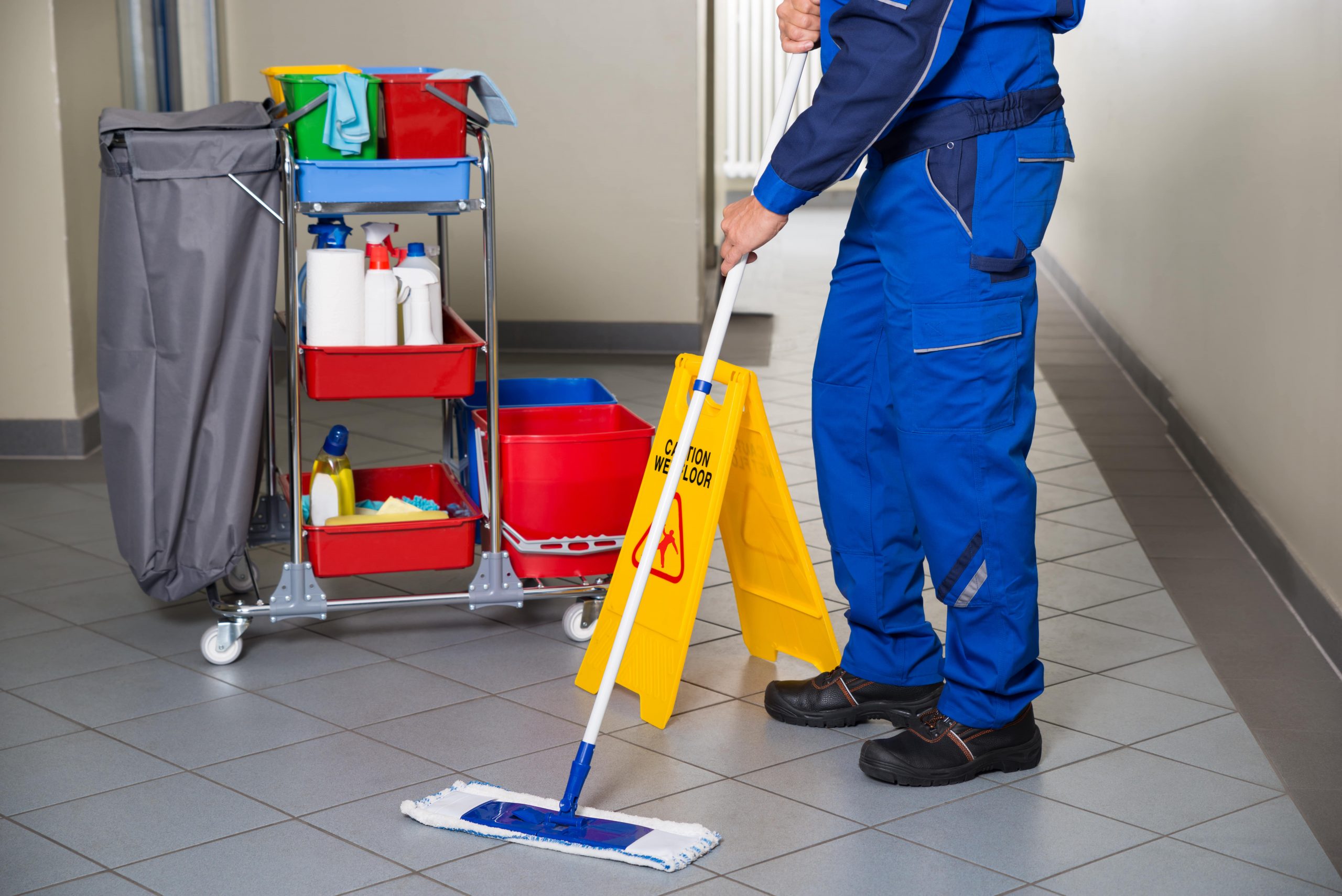
5 Essential Health & Safety Tips For Cleaners
It is essential that the correct health and safety requirements are implemented and understood by all members of the workforce. Cleaners have a unique profession where they are constantly operating in potentially dangerous environments, and they have a duty to protect themselves, as well as other colleagues and customers.
Whether it’s the correct storing of equipment, preventing trips and slips or removing potential fire hazards, we have provided five essential cleaning safety tips. It must be noted that this shouldn’t come in place of proper staff training – everyone on your team should understand health and safety regulations and the actions to take in the event of an accident.
Why is Health and Safety Important for Cleaners
Cleaning is an industry that faces a large amount of risks and hazards. Whether it’s potentially harmful substances, the danger of tripping and falling or fire hazards, cleaning requires strict guidelines to ensure the safety of staff and workers.
You risk serious injury and the development of health conditions such as eczema, asthma or musculoskeletal disorders by not adhering to health and safety regulations. There is also the increased risk of spreading harmful bacteria that can spread around the workplace and be taken home. In extreme instances such as falls from high places and fires, accidents have the potential to be fatal. This is why it is important to choose a cleaning company that understands and implements the correct safety procedures into their daily operations.
Cleaning Safety Tips
Follow Correct Procedures
One of the most important cleaning safety tips is to always follow the safety procedures that are in place. Safety procedures are there to ensure that staff have guidance on issues regarding health and safety. It is absolutely paramount that these procedures be understood and followed by all staff at all times. They help to minimise risk when dealing with potentially harmful products and prevents the spread of potentially harmful bacteria that can lead to illness.
Prevent Any Kind of Trips, Slips and Falls
Cleaning is a profession that involves lots of wet floors and spillages, as well as physical hazards such as wiring. There is also the risk of falling when cleaning high, difficult to reach spaces. It is perhaps no surprise then that trips and falls are the most common type of non-fatal accident for cleaning staff.
Trips, slips and falls are not always completely avoidable, but there are ways to reduce the risk. The first is by wearing the correct footwear at all times with a sufficient level of grip and support. This is especially true if you regularly operate in environments with slippery flooring, such as kitchens or bathrooms. They should always be in good condition and be comfortable to wear for long periods of time.
Any spillages that do occur should be cleaned up immediately and a wet flooring sign should be placed to warn others. Avoid standing on wet areas of floor whilst cleaning if possible, and always use the closest electricity socket to avoid the amount of cabling on the floor.
Remove Fire Hazards
Eliminating fire hazards is an essential part of creating a safe working environment. A cleaning company should always take care in carrying out thorough fire safety risk assessments and all staff should know what to do in the event of a fire. This involves knowing meeting points, the location of fire exits on what equipment to use.
Potentially flammable materials should be kept apart from sources of ignition and should be removed altogether if not necessary. Any buildups of rubbish should be completely avoided and escape routes should always be kept clear.
Store Materials and Substances Properly
Potentially hazardous substances and chemicals will always be commonplace within the cleaning industry, so it’s important they are stored and handled correctly. The first rule is to follow the manufacturer’s instructions on the packaging. They will know better than anyone the safest ways to store and use their products, as well as what to do in the event of an accident.
You should always wear appropriate protective equipment and should be fully trained on how to use substances. When storing, keep incompatible substances apart, keep the minimum amount of substances necessary and always label correctly if using different containers or boxes.
Flammable and explosive substances should be handled with the same level of care. Always store them away from areas that contain other flammable materials make sure to store where they are least likely to be damaged. Never overfill containers and make sure to supervise all deliveries coming onto work premises.
Use Protective Equipment and Tools
This is obvious, but the correct PPE should be used at all times when cleaning. This includes steel-capped boots, safety glasses, hair nets, protective gloves and more. It is important to know when to use the right PPE – again, you can check the label of the product if you are unsure.
Regularly inspect and clean your PPE and make a conscious effort to make sure it is kept in safe, working order. If you do find a broken piece of equipment, either fix it or order in a replacement. The broken item should always be removed.
Why Use Professional Cleaning Service?
Even though this is not one of our cleaning safety tips, hiring a professional cleaning company is the safest way of achieving high quality, consistent cleaning results. At LCS, our staff receive full in house BICS standard training to ensure they can safely use cleaning substances correctly. We also meet all health and safety regulations and provide regular supervision to ensure our high standards are maintained.
We provide a range of cleaning services in a selection of different industries, all of which will be completely tailored to your requirements. If you are interested in inquiring about our services, please contact a member of our team today. Visit our contact page to send an enquiry or contact us directly on 01604 926004.